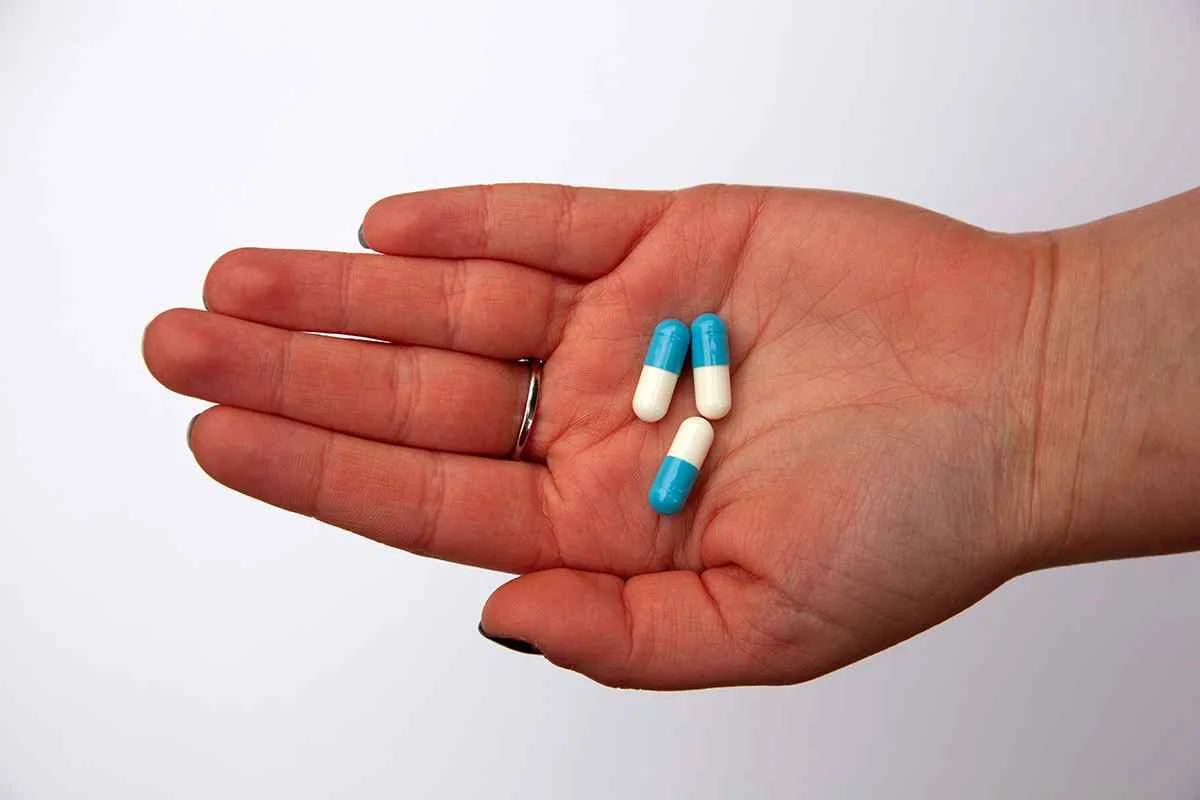Dexmethylphenidate
Dexmethylphenidate is a stimulant substance used in the treatment of attention deficit hyperactivity disorder (ADHD). However, undirected use of this drug can lead to dependence and susceptibility to substance use disorder.

Common Brand Names: Focalin, Focalin XR
Dexmethylphenidate belongs to a class of drugs called central nervous system (CNS) stimulants. It is usually prescribed to adults or children above the age of 5 for the treatment of attention deficit hyperactivity disorder.
Usually sold under the brand name Focalin, dexmethylphenidate is a more potent isomer or chemical derivative of methylphenidate, which is available under the brand name Ritalin among others. These drugs work by inhibiting dopamine and norepinephrine reuptake transporters in the synapses of the thalamus and striatum in the brain. It can come in the form of a tablet or an extended-release capsule.
What Is Dexmethylphenidate Used For?
Under the brand name Focalin, dexmethylphenidate has been FDA-approved since 2001 for the treatment of attention deficit hyperactivity disorder. In particular, it can help address a patient’s difficulties with focusing, controlling their actions, and remaining still or quiet relative to their other individuals belonging to the same age group.
How Is Dexmethylphenidate Abused?
Dexmethylphenidate, along with other CNS stimulants and methylphenidate-containing medication, can be habit-forming and present a high potential risk for dependence and abuse. Along with other methylphenidate products, it is classified as a Schedule II controlled substance under the federal drug scheduling system.
Dexmethylphenidate is abused in several ways, including the following:
- By consuming more tablets or capsules than is medically acceptable.
- By chewing the drug
- By crushing the drug and inhaling the powder (snortingz)
- By dissolving the drug in water and intravenously injecting it.
Though these methods can hasten and magnify the effects of the drug, they can also result in acute toxicity and psychosis. The latter’s symptoms have been compared to those of amphetamine abuse.
Methylphenidates, including dexmethylphenidate, have a high risk for abuse due to the euphoric feeling that’s said to accompany its consumption in higher quantities. The effect is greatly increased when the drug is either crushed and snorted or dissolved and injected intravenously.
Drug Interactions Associated with Dexmethylphenidate
Care should be taken when prescribing or taking dexmethylphenidate to avoid negative effects associated with its concomitant use with other substances. In particular, using CNS stimulants like dexmethylphenidate alongside monoamine oxidase inhibitors (MAOIs) can result in hypertensive crises. As a result, they should not be used within 14 days of each other. Some examples of these MAOIs include:
- Selegiline
- Tranylcypromine
- Isocarboxazid
- Phenelzine
- Linezolid
- Methylene blue
Similarly, dexmethylphenidate may also decrease the effectiveness of drugs used to treat hypertension. An adjustment to their dosage may then be necessary for hypertensive individuals. Some of these medications include:
- Potassium-sparing and thiazide diuretics
- Calcium channel blockers
- Angiotensin-converting-enzyme (ACE) inhibitors
- Angiotensin II receptor blockers (ARBs)
- Beta blockers
- Centrally acting alpha-2 receptor agonists
Halogenated anesthetics, which are commonly administered by inhalation during surgery, may also interact with dexmethylphenidate. This can result in a sudden drop in blood pressure and an increase in heart rate in patients. These anesthetics include:
- Halothane
- Isoflurane
- Enflurane
- Desflurane
- Sevoflurane
To avoid the associated risks, make sure to inform your physician if you are currently taking dexmethylphenidate before scheduling a surgical procedure. You may be requested to avoid taking the drug on the day of the surgery.
Other drugs that may interact with dexmethylphenidate also include anticoagulants such as apixaban, heparin, and warfarin, as well as anticonvulsants such as phenobarbital and phenytoin.
Side Effects of Dexmethylphenidate Use
As with most CNS stimulants, you may experience the following common side effects when taking dexmethylphenidate:
- Nausea
- Heartburn
- Weight loss
- Dry mouth
- Dizziness
- Drowsiness
- Nervousness or jitteriness
- Headache
Serious adverse effects may also be encountered with dexmethylphenidate use. Contact a physician immediately if any of the following is encountered:
- Excessive tiredness
- Slow or slurred speech
- Weakness or numbness of an arm or leg
- Changes in vision or blurred vision
- Seizures
- Believing things that are not true
- Feeling unusually suspicious of others
- Hallucinations (seeing things or hearing voices that do not exist)
- Mood changes
- Aggressive behavior
- Depression
- Motor or verbal tics
- Swelling of the face, throat, tongue, lips, or eyes
- Rashes
- Hives
- Itching
- Purple blotches under the skin
- Fever
- Blistering or peeling skin
- Joint pain
- Prolonged, painful erections
- Erection that lasts longer than 4 hours
- Numbness, pain, or sensitivity to temperature in the fingers or toes
- Skin color change—from pale to blue to red—in the fingers or toes
- Unexplained wounds on the fingers or toes
Additionally, serious side effects have been reported in people with heart-related problems. These include:
- Increased blood pressure and heart rate
- Stroke and heart attack in adults
- Sudden death in patients who have heart problems or defects
Contact your doctor immediately if you or a loved one experiences heart-related problems such as chest pain, shortness of breath, or fainting after taking dexmethylphenidate.
Effects of Chronic Dexmethylphenidate Use
The most-cited long-term side effect associated with long-term dexmethylphenidate use is slowed growth or weight gain among children. Studies have indicated that consistently medicated children may grow in height by 2 cm less and gain weight by 2.7 kg less over a span of 3 years. As such, the growth of children taking the drug should be closely monitored, and treatment may need to be interrupted if the patient’s growth is below expectations.
Dexmethylphenidate Overdose Symptoms
Signs of a dexmethylphenidate overdose may include any of the following:
- Vomiting
- Agitation
- Uncontrollable shaking or tremors of a part of the body
- Twitching in the muscles
- Seizures
- Unconsciousness
- Inappropriate happiness
- Confusion
- Hallucinations, characterized by seeing things or hearing voices that don’t exist
- Sweating
- Flushing
- Headache
- Fever
- Changes in heartbeat (e.g. rapid, pounding, or irregular heartbeat)
- Widening of pupils (causing pupils to appear like black circles in the middle of the eyes)
- Dry mouth
Contact emergency services immediately if a person has collapsed, is experiencing a seizure, has difficulty breathing, or can not be awakened.
Signs You May Have an Addiction to Dexmethylphenidate
The Diagnostic and Statistical Manual of Mental Disorders, Fifth Edition (DSM-5), lists 11 signs of substance use disorders that may also be used to diagnose dexmethylphenidate addiction and other stimulant use disorders. These include:
- Taking dexmethylphenidate beyond the dosage and duration originally intended
- Being unable to reduce or cease dexmethylphenidate use despite wanting to
- Spending too much time on the acquisition, consumption, or recovery from use of dexmethylphenidate
- Experiencing cravings or strong urges to use dexmethylphenidate
- Inability to manage obligations because of dexmethylphenidate use
- Continuing to use dexmethylphenidate despite it causing relationship problems
- Giving up important social, professional, or recreational activities because of dexmethylphenidate use
- Continuing to use dexmethylphenidate, even when it puts you or others at risk
- Continuing to use dexmethylphenidate, even when it’s shown to aggravate existing medical conditions or cause new ones
- Feeling a need to increase dexmethylphenidate use to achieve desired effects (increased tolerance)
- Developing withdrawal symptoms when dexmethylphenidate use is immediately stopped
Symptoms of Dexmethylphenidate Withdrawal
If you have developed a dependence on dexmethylphenidate, you may encounter the following stimulant withdrawal symptoms upon suddenly ceasing its use:
- Depression
- Fatigue
- Vivid and unpleasant dreams
- Insomnia
- Excessive sleepiness
- Increased appetite
- Slowing down of thought and/or physical movement
- Agitation
The above withdrawal symptoms are also clear signs of dexmethylphenidate dependence, which you can still end up developing despite closely adhering to your prescription or not abusing the drug. Since these symptoms can be highly unpleasant and even dangerous, it’s best to reach out to licensed medical professionals who can guide you through a detox program that’s designed specifically for you.
What Does a Dexmethylphenidate Detox Program Involve?
If you or anyone you know is experiencing unpleasant dexmethylphenidate withdrawal symptoms, one of the best things you can do is to seek help and choose to undergo a detoxification program. These detox and withdrawal management programs aim to gradually and safely lower your daily dosages with the guidance and monitoring of a trained health professional.
With an effective detox program, you can successfully reach a substance-free state while also reducing or outright eliminating the associated dexmethylphenidate withdrawal symptoms. At the direction of a doctor assigned to you at your chosen facility, supplements and other medications may also be provided to ensure your safe restoration to good health.
Dexmethylphenidate Addiction Treatment
You can enter yourself or your loved one into a stimulant addiction treatment program to better ensure a successful path towards recovery. Though this may be challenging, rest assured that you will be guided and monitored by trained medical professionals.
Generally, two types of programs are available for people who are looking to undergo dexmethylphenidate addiction treatment:
- Outpatient dexmethylphenidate addiction treatment: If you are determined to be a lower-risk patient with less dangerous symptoms and a high likelihood of treatment compliance, an outpatient treatment program may be more ideal for you. For this type of program, you will be allowed to continue living in your own home, as well as go to school or work. However, you will still need to attend your treatment sessions at your chosen facility.
- Inpatient dexmethylphenidate addiction treatment: High-risk patients with more severe cases of addiction and a lower likelihood of treatment compliance should ideally undergo an inpatient addiction treatment program. This option will require that you stay at your chosen treatment facility for the duration of your treatment. As you will be under round-the-clock medical supervision and more intensive psychological therapy, you will have a higher chance of safely and successfully attaining long-term sobriety.
Because there are currently no drugs available for treating stimulant addiction, you’ll likely be exposed to treatment modalities that are aimed to change your thoughts, attitudes, and behaviors. Psychosocial interventions like cognitive behavioral therapy, relapse prevention therapy, motivational interviewing, contingency management, community reinforcement approach, and brief interventions, can be very helpful treating stimulant use disorders.
Seek Addiction Treatment Now
Once you have accepted that you have a problem and that you need help, the next step is to seek the drug rehab or treatment you need. Luckily, we at Better Addiction Care can help you on your journey toward sobriety with the help of our network of partner treatment centers nationwide.
Call us now at (800) 429-7690 to speak to a trusted and well-trained recovery support advisor. Our advisors can also help you check your insurance coverage for the best available treatment options—and even help you get alternative financing options if you’re uninsured.
A Brief History of Dexmethylphenidate
Dexmethylphenidate was first FDA-approved for the treatment of ADHD in 2001 under the brand name Focalin. Chemically, it is an isomer of methylphenidate. This means that it shares the same molecular composition and formula with methylphenidate but has a different chemical structure.
Dexmethylphenidate is specifically an enantiomer of methylphenidate, which means that their chemical structures are mirror images of each other. In this situation, the result is higher potency with fewer reported side effects for dexmethylphenidate.
The habit-forming properties of dexmethylphenidate have caused it to be labeled a Schedule II drug along with other stimulants like methamphetamine and strong pain relievers such as fentanyl and morphine. These drugs require special prescriptions which cannot be refilled and thus require a new prescription every time the medication runs out. This is to ensure that individuals do not take it longer than is safe and do not improperly take more of the drug.







